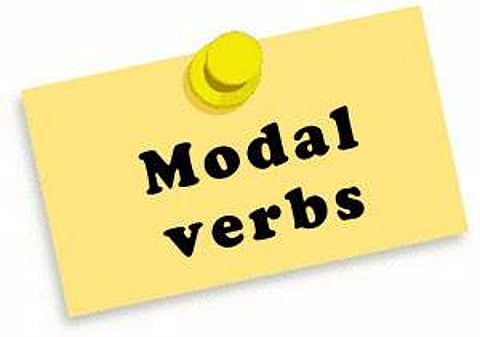

A teacher of English working in a school in Andhra Pradesh has sent in this query: “My students find it difficult to use modal verbs correctly. Is it a common problem for all learners of English? Is there any effective way of teaching modals?”
Here are a few more queries that are related to modal verbs. “What is the difference between ‘will’ and ‘would’?” “Can ‘may’ and ‘might’ be used interchangeably?” “What modal verbs are used as polite ways of asking someone to do something?”
It is true that learners of English have difficulty learning modals. It could be due to the following reasons. Some modal verbs have more than one function and meaning
For example, ‘must’ is used to talk about the functions of deduction, obligation, polite invitation and prohibition. Their forms (may-might, will-would, shall-should, can-could) also confuse the learner. The modals ‘could’, ‘would’ and ‘might’ are not always used as the past forms of ‘can’, ‘will’ and ‘may’.
It is quite natural for learners to get confused about which modal to use because two or more different modal verbs can be used to express a particular function. For example, ‘can’, ‘could’ and ‘may’ can be used to ask for permission to do something. Look at these examples.
-Can I call you around 7 o’clock this evening?
-May I make a presentation now?
-Could we meet tomorrow to discuss the training programme?
In the examples above, ‘could’ is more polite than ‘can’.
When talking about expressing possibility, ‘can’ and ‘could’ have different meanings. The sentence, “You could meet him at his residence,” implies that it is a suggestion or a piece of advice. The sentence, “You can meet him at his residence,” implies that it is one of the options.
How does one teach modals effectively? Teachers should know that it is not good to terrorise students with grammatical terms such as modals and modal verbs. A term like ‘helping verbs’ could be used.
It is also not advisable to make students memorise the definitions of grammatical terms. Students should be trained to use the language. First, it should be demonstrated to learners so that they can understand the difference between an action word (verb) and a helping verb (modal).
Memorable quotes or good jokes in which modals have been used can be given to students and they should be asked to state what functions the modals express. Examples:
-Not everything that is faced can be changed. But nothing can be changed until it is faced.
-If a man expects a woman to be an angel in his life, then he should first create a heaven for her.
Questions which contain modals can be posed to the students. In turn, they will be able to give answers using modals.
Students should be encouraged to read different types of texts. This will help them understand why a specific modal is used in one place rather than another.
